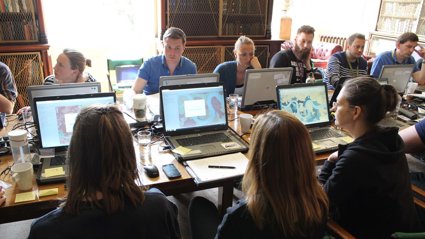
Choose geography as a postgraduate
Postgraduate study can offer you the chance to improve your career prospects and stand out from the crowd, while specialising in a subject you enjoy.
Postgraduate study is studying at a higher level than undergraduate, and includes taught degrees such as postgraduate diplomas, MAs, MScs and MBAs, and research degrees like PhDs.
Approximately a fifth of geography graduates return to university to undertake postgraduate study. Many undertake a master's degree that allows them to specialise in a specific area, such as geographical information systems (GIS, remote sensing, conservation, water resources, or environmental management. Others choose a postgraduate course in a different subject, to give them the professional skills they need to share what they learned in a geography degree, for example teaching, surveying, planning, management or finance. These degrees are often a planned step in a career plan.
Some students pursue postgraduate education to PhD-level - the highest level of degree a student can attain. A PhD demonstrates that you've made a meaningful contribution to a research field. In addition, PhDs today are versatile qualifications that develop a wide range of your transferable skills, and can include placements and opportunities for networking and professional development. While some PhD graduates go onto careers in research and higher education, others take their experience and skills into private or public sector. To find out more, watch our webinar on PhDs and careers in research.

Choose a geography master's degree
Learn more about things to consider when choosing a geography master's degree.

Choose a PhD
View our our step-by-step instructions on how to apply for a Geography PhD programme in the UK.

Directory of GIS Masters' courses
Use our directory of geography courses to as a guide to geography in higher education in the UK.